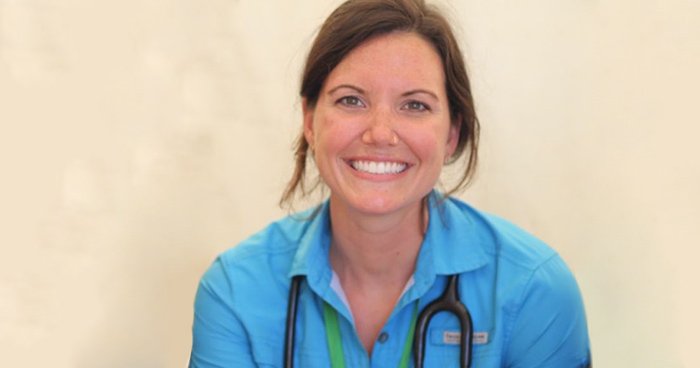
Photo provided by Kelli Wagner.
I am a nurse. I know the impact of the COVID-19 pandemic. It’s changed our work in the pediatric emergency department in many ways. Gone are the days where I can reassure a nervous child with a warm smile, as now my face remains covered with a mask for virtually an entire 12-hour shift in the department. Children are incredibly perceptive. They recognize and feed off the anxiety that most adults exhibit on a daily – sometimes hourly – basis in this new world in the midst of COVID-19.
My department has faced many challenges since the onset of the pandemic, but the one that struck me the most was when my colleagues had to send their young children out of the home to live with relatives or in-laws, unsure of when the family might be reunited.
My fellow nurses decided other people could protect their children better than they could, as they continued to work in an environment that all but guaranteed them exposure to the virus. In fact, several employees in our department fell ill early in the pandemic, and many of them tested positive for COVID-19. Their decisions, entangled in sadness and the unshakable motherly instinct to protect one’s children, reminded me of an interaction I had with a woman while working in a refugee camp in Greece a few months ago.
She was a young woman from Afghanistan, and I had only met her a few moments earlier. She asked me if I could take her nephew with me back to the United States. She reasoned that I could better protect her nephew in the United States, where he would be far from the many dangers and challenges in the Moria refugee camp.
In addition to the obvious concerns in a refugee camp, one aspect is more important than ever: health. In most refugee settings, healthcare services are threadbare at best. David Skinner, the Save the Children Team Leader for the Rohingya Refugee Response, highlighted this when he raised concerns about the thousands of beds they’ll need when the virus inevitably reaches the world’s largest refugee camp, located in Bangladesh. Right now, they only have 350 beds to serve the current population of more than 900,000. For reference, Austin, Texas has a similar population size, but it has more than 30,000 hospital beds to support the health of its residents.
Having spent several weeks working in the Rohingya camps in 2017, I’m familiar with the normal challenges of protecting the health of vulnerable populations. These will be compounded and exacerbated by COVID- 19. Overcrowding, large household sizes, and limited access to water and sanitation services form the perfect melting pot for sickness and ultimately death. Many children will be left parentless, or fall ill themselves. These children are already vulnerable, so the consequences of the pandemic will be severe.
Refugee parents want the same safety and wellbeing for their children that my coworkers want for their families. But I was still surprised when my colleagues in Illinois were forced to resort to similar measures as those fleeing violence in Afghanistan. Though there are many differences between the two situations, one commonality is clear. Parents everywhere will make heartbreaking and difficult decisions if they think their children are in danger.
Sadly, right now that is the case for many children, regardless of their situation. Parents are losing their jobs and income, and schools across the globe are shutting their doors. This means that children are more vulnerable to domestic abuse, child marriage and child labor. Children in food-insecure households will experience hunger that was previously abated due to school food programs.
I’ve seen the effect of this virus firsthand. I’ve also seen the heartbreaking decisions that many parents have made – both at home and abroad – for the sake of their children. As governments around the world make decisions about how and where to invest during this pandemic, let us not forget to invest in children. The policies and programs put in place now will have lasting effects on their growth, both physical and emotional.